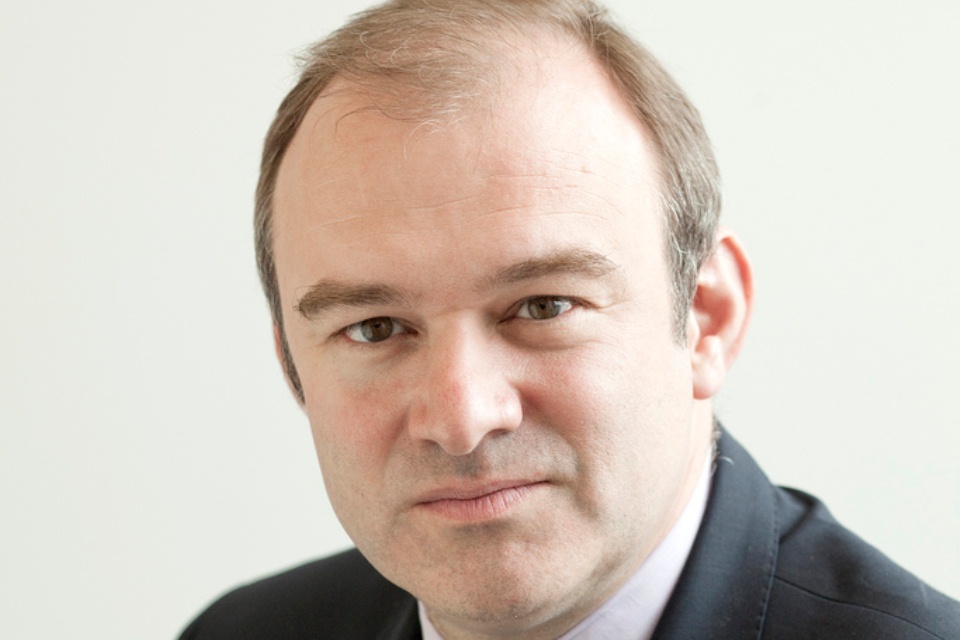Written Ministerial Statement by Edward Davey: UK Negotiating Position on the EU 2030 Climate and Energy Framework
Written Ministerial Statement by The Rt Hon Edward Davey Mp: Secretary Of State For Energy And Climate Change on the UK's Negotiating Position on the EU 2030 Climate and Energy Framework.

Earlier this year, the European Commission adopted a Green Paper on “A 2030 framework for climate and energy policies”. The Government will be responding to the Commission consultation to set out how we believe the 2030 framework should look in order to give businesses the certainty they need to invest in low carbon to enable cost effective emissions reduction and to ensure the EU remains a world leader in low carbon technologies. The UK Government position on the EU 2030 framework is:
-
We strongly support EU action to tackle climate change and to help deliver the EU’s goal of limiting global temperature rise to 2 degrees. We remain committed to an increase in the EU climate target for 2020 to 30% and are pushing strongly for urgent structural reform of the EU Emissions Trading System (ETS) to ensure it continues to incentivise investment in low carbon.
-
We must celebrate the success of the 2020 Climate and Energy Package. By 2011 EU emissions were already down 17.6% on 1990 levels (Reference: European Environment Agency).
-
But we should also learn the lessons from 2008 package - the EU climate deal for 2020 was not sufficiently ambitious, and the renewables target was the product of a time when renewables badly needed a catalyst. The EU has moved on since then; we need to see a new deal on greenhouse gas targets that is ambitious, but which has flexibility to let countries follow their most cost effective decarbonisation approach.
-
Looking to 2030, the EU should adopt a unilateral EU target for 2030 of a 40% reduction on 1990 levels. In the context of an ambitious global climate agreement for the period beyond 2020, the EU’s target should increase to up to a 50% reduction on 1990 levels.
-
We believe that the best way to deliver our low carbon goal is through a binding GHG target and a strong EU Emissions Trading System, with flexibility for Member States to pursue a wide range of options to decarbonise in the least cost way. Whilst we strongly support renewables to 2020 and beyond, we do not believe a binding EU Renewables target would be cost effective, fit well with our electricity market reforms which incentivise low-carbon generation in a technology-neutral way, or be-in line with the Government’s commitment to sector-neutral and least-cost emissions reduction. We support EU action where appropriate to enable increased levels of renewables, such as a renewed focus on Research and Development under the Strategic Energy Technologies Plan and ongoing work to complete the Single Energy Market.
I will be working closely with my EU partners over the coming months to try to ensure that the EU can at the earliest opportunity agree an ambitious but flexible 2030 Climate and Energy Framework.